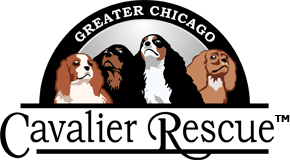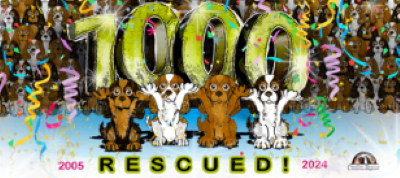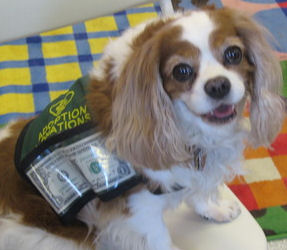-
Add cavaliers@gccavalierrescue.org to your contact list!
-
"Until one has loved an animal, part of his soul remains unawakened."....
-
"Every volunteer does a little bit to help needy Cavaliers; together we do a lot."....
-
"Heaven help the little Cavaliers who call for help, and no one comes.".....
Cavalier Health
Cavalier Health
Cavaliers are basically healthy, sturdy small dogs with few but important health concerns:
Mitral valve disease. The left or mitral valve of the heart thickens and degenerates leading to congestive heart failure and eventually death. Although MVD is common in most toy breeds, it is of particular concern in Cavaliers because it may have an unusually early onset with a more rapid progression of symptoms compared to other breeds.
Luxating patellas (slipping kneecaps). A condition when the knee is not stable and can cause lameness. Generally not a concern for Cavaliers with good bone and healthy parents.
Syringomyelia (SM). Of increasing concern, some Cavaliers are born with not enough room in the space in the skull that contains the back of the brain. Damage is caused when fluid surrounding the brain is forced into the spinal cord. The most common symptom is scratching on, or in the air near the head when the dog is excited or walking on a lead.
Episodic falling syndrome. Generally evident at a young age. If very mildly affected, the Cavalier will freeze in mid-run and just stand there with back legs looking slightly stiff for some seconds, then carry on. If very severely affected, the Cavalier will fall over frequently when excited, not just when running at high speed, and might also be a fly catcher. Fly catching is a neurological disorder where the dog jumps in the air as if he were catching flies where none exist.
GCCR will help by referring Cavalier owners to veterinary specialists for diagnosis and care.








